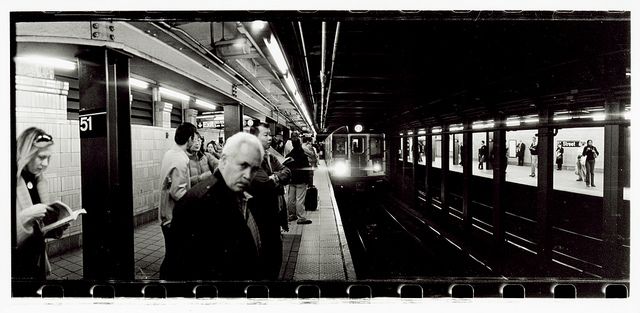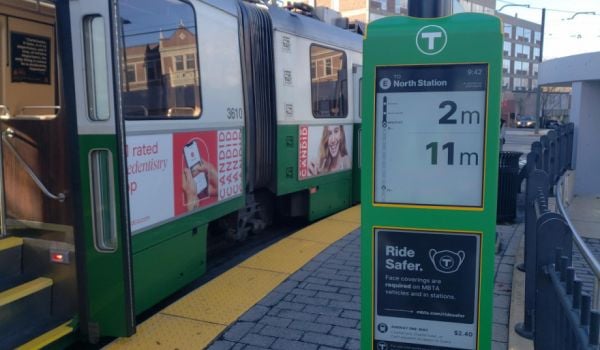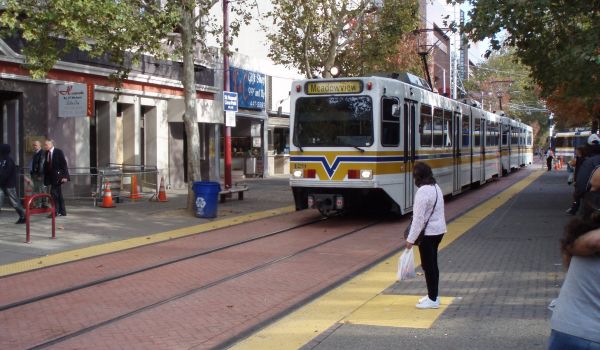Barring any last-minute term limit antics from Mike Bloomberg, New York City will elect a new mayor this fall.
Bloomberg has embraced progressive planning ideas for New York from sustainability to micro-apartments to the hot-button bike share that recently launched. But cities can’t sit on their heels, and the Center for an Urban Future and NYU’s Wagner Innovation Lab put together a report for the incoming mayor called “Innovation and the City.”
The report highlights 15 policy ideas from cities around the globe that, they argue, should be adopted in New York. They worked with over 200 policy experts and narrowed it down first to 120 policies that might be good for New York, then to the final 15. The report suggests everything from London’s Spacehive (a crowdfunding website for capital projects) to Boston and Chicago’s plans for updating 311 with open-source data and new software. You can read the whole report here, but I thought I’d take a close look at No. 15 — they’re presented in no specific order — San Francisco’s Commuter Tax Benefit.
In 2009 the city of San Francisco passed a law that required businesses with 20 or more employees to provide tax-free commuter benefits. If you live in a city and have never been offered this at your place of work before, it’s simple: A certain amount of transit expenses — in San Francisco it’s up to $245 each month — is tax free. That’s for subway, bus or commuter-rail routes. And San Francisco went a step further, offering an additional $245 each month to employees who take advantage of qualified parking at BART stations. They might be driving, but they’re driving to mass transit.
When I took a job at News Corporation’s New York office in December 2010, it was the first thing I asked about (after health insurance). Where can I sign? Each month, $105 was taken out of my bank account, tax free, and put on a commuter benefits credit card that I used to purchase a monthly MTA card. I had to get to the News Corp. building in midtown Manhattan from my Brooklyn apartment five days a week. I was going to spend that money no matter what, so why not fork it over before taxes? The payroll deduction they offered made it that much easier. News Corp. didn’t have to offer this, but I was fortunate they did.
Lots of companies offered this in San Francisco before 2009. But according to the report, the law “greatly increased the number of people taking advantage of the federal tax-free transportation program, a development that benefits both employees and employers and has no meaningful cost to the city.” And while many larger companies, like the corporation I used to work for, we’re already offering this, small and medium-sized companies embraced it head on. The Innovation Report says that companies with fewer than 100 employees have the highest participation rates at more than 60 percent.
The San Francisco Chamber of Commerce gave the bill a glowing endorsement back in 2009, “While the Chamber generally opposes mandates on business, the City’s requirement that businesses with 20 or more employees working in San Francisco establish a program to promote the use of public transit can be an economic benefit. In addition to helping to reduce greenhouse gas emissions by getting people out of their cars and onto transit, the law can be a money-saver for business.”
So why is it good for New York, where a large percentage of the population already commutes to work via public transit? By expanding the number of businesses that offer the tax break, it will give some financial relief to New Yorkers when the cost of pretty much everything else in the city is consistently skyrocketing, including MTA prices. If you want to go the trickle down route, that means New Yorkers will have a little extra scratch to spend at local restaurants or businesses. More money will go to the MTA and local businesses. It’s arguably a boon for everyone: The MTA has more cash in its coffers and local businesses might see a spike in spending, whether it’s the corner bodega or a local boutique shop.
Some will complain about more crowded subways, but here’s where the new mayor can really make a mark (and deal with a barrage of equally rabid citizens): Make CitiBike a part of this proposed tax-free transit program. If CitiBike works out like Bloomberg envisioned it, thousands of people will be riding those blue cruisers to and from work every day. It’s transit. Why shouldn’t it be tax free like the MTA?
The Equity Factor is made possible with the support of the Surdna Foundation.

Bill Bradley is a writer and reporter living in Brooklyn. His work has appeared in Deadspin, GQ, and Vanity Fair, among others.

















